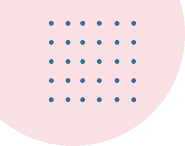Finding your dream home just to find out you can't obtain a mortgage is heartbreaking, especially if you're looking to set out on your own for the first time, expand your family, or move closer to your workplace. While this fear touches every potential new homeowner, it bars those with poor financial standing, leaving them to believe they'll never find a place of their own.
In Canada it's possible that even if you are a likely candidate for a mortgage, there still exists the chance you may be denied.
Fortunately, Canadian B, also known as subprime lenders, like Realty Financial Advisors (RFA) give these individuals a second chance with a mortgage agreement slightly different from those in traditional banks. This RFA mortgage review from the team at Insurdinary outlines what an RFA mortgage is, who can take advantage of it, and what to expect once partnered with RFA.
Disclaimer:
All, or some of the products featured on this page are from our affiliated partners who may compensate us for actions and or sales completed as a result of the user navigating the links or images within the content. How we present the information may be influenced by that, but it in no way impacts the quality and accuracy of the research we have conducted at the time we published the article. Users may choose to visit the actual company website for more information.
What Is a B Lender?
B Lenders offer flexible mortgage options for those who have low credit scores. The big six banks are very stringent in their approval requirements and are tailored to those who have excellent credit. B lenders will have higher interest rates no question, but they offer second chance opportunities for home ownership. The higher interest rate is due to working with clients who are more likely to default on their loans, so they incorporate these rates to compensate for possible loss. B lenders are privately owned financial institutions and are not regulated by the OFSI (Office of the Superintendent of Financial Institutions. A lenders (big banks) are regulated by the OFSI and must follow the strictest of regulations when it comes to mortgage approvals.
How Is RFA Different from a Traditional Mortgage Company?
Usually, homebuyers with moderate to high credit scores and steady incomes are low-risk applicants, according to traditional banks or A lenders in Canada. Using their risk-based pricing model, these banks take note of applicants with a strong history of making on-time payments and grant them a mortgage loan with lower interest rates.
However, what do you do if you don't have good credit due to missed payments or multiple loan or credit card applications in a short period? You can either spend several years paying off your debt to elevate your credit score or work with an alternative mortgage company like RFA.
RFA is a mortgage provider that welcomes those with low credit scores to consider their B provider benefits. Unlike traditional banks with a strict and inflexible application process, this private financial establishment does not receive regulation from the Office of the Superintendent of Financial Institutions (OFSI), as discussed above. Instead, RFA uses its own rules for approving mortgages.
RFA, founded in 1996, uses its $90 billion in assets to assist with retirement homes, debt financing transactions, and investments. After merging with Street Capital Bank in 2018, RFA added mortgages to its list of dos. Now, RFA works as an A provider for well-established clients and a B provider for those struggling with their credit.
Housing Prices Are on The Rise
See what your mortgage payments will be using a Mortgage Payment Calculator.
HELP ME CALCULATEWho Benefits from RFA?
Canadians with poor credit ratings may turn to RFA as an alternative to receiving a mortgage from a bank or other financial institution to purchase their dream home. However, this RFA mortgage review also highlights others who benefit from the lenient requirements.
Those without a steady income may appear to have an unstable financial situation and are not guaranteed to make steady mortgage payments. That's why traditional banks either raise the interest rate when taking a chance on a client or refuse a mortgage loan altogether. RFA while also having higher interest rates, doesn't turn down a client with an inconsistent income.
RFA assists those with the following types of jobs:
- Seasonal: Those who work at a specific establishment only during certain times of the year, such as ski resorts in the winter or as lifeguards in the summer.
- Part-time: Those who may have a steady job but don't work enough hours or days per week to afford a mortgage.
- Commission-based or self-employed: Those with an unsteady influx of projects or assignments and constantly looking for work from new clients.
Unfortunately, interest rates with B providers are generally higher than with most A providers since the latter is taking higher risks by dealing with clients more likely to default on payments. Therefore, before partnering with an alternative mortgage finance company, check out Insurdinary's mortgage affordability calculator to determine your potential interest rate and the cost of monthly mortgage payments.
What Mortgages Does RFA Offer?
RFA may not offer as many mortgage programs as traditional banks, like home equity lines of credit or HELOC, but you can choose from a fixed or variable-rate mortgage that spans one to five years.
Fixed Rate Mortgages
Applying for a fixed rate means your provider locks you into a set interest rate for the entirety of the mortgage period. Each month, you pay the same amount.
On average, the RFA fixed mortgage rates start at 4.69% for one year and slightly increase to 4.79% for two-year or three-year fixed mortgage rates. A four-year fixed interest rate comes with an interest rate of 4.89%, but a five-year fixed rate drops to 4.59%.
Variable Rate Mortgages
A variable mortgage rate may seem like a gamble to new homeowners since the interest rate fluctuates between months. The variable interest rate is contingent on the prime rate set by the Bank of Canada. For instance, interest rates may go up during inflation or decrease, allowing consumers to purchase more during a recession and stimulate the economy.
At the end of your one to five-year plan, you may have saved or spent more money when compared to a fixed rate plan of the same longevity, depending on the economy.
Whether you choose a fixed or variable rate through RFA, you have the flexibility to alter your plan after your one to five-year plan is complete.
Regardless of whether you have a variable rate or a fixed rate mortgage with RFA, you have the option to make changes. This is great in terms of flexibility. Using RFA's online portal, you are able to:
- Make payment increases of your principal and interest payments of up to 20% annually.
- Arrange for additional payment increases of up to 20% annually
- Change your payment schedule. (weekly, bi-weekly, semi-monthly, monthly)
- Make payment date changes
RFA Mortgages for Canadian Newcomers
The journey towards home ownership can be a challenging one, especially if you're a newcomer to Canada. Finding work, suitable schools for the children, and overall adjusting to a new life are tasks that can take years to assimilate to. Most newcomers simply don't have the time to begin to build their credit in order to achieve homeownership, especially if huge chunks of their monthly income goes towards the rent.
At this time, RFA doesn't have a program specifically designed for newcomers. The good news, is that because their primary focus is on helping people with non-traditional credit scores anyway, they are a good option for newcomers as well. Reach out to RFA directly for more information on how they may be able to guide you towards owning your own home in Canada. Want to know more about how to prepare for a new life in Canada? Read this financial checklist for newcomers.
How to Apply for an RFA Mortgage?
If you are working with a mortgage broker, applying for a mortgage with RFA is simple. And if not, a simple phone call to the company will land you with a representative that can begin the process for you. It's good to come prepared to the call however with a basic understanding of how mortgages work. Visit our blog for a wealth of information on mortgages. It's also wise to know that the mortgage application process involves gathering many documents. You will be required to show proof of:
- Current address
- Assets and liabilities
- Employment
- Identification
While the list above is accurate, take a moment to familiarize yourself with the finer details of what documentation is acceptable for a mortgage application package.
Take Advantage of These RFA Incentives
Our RFA mortgage review also includes programs that the RFA uses to benefit its clients, including prepayment privileges that allow new homeowners to lower their interest costs by paying more on their mortgages at a given time.
For one, RFA allows you to pay up to 20% of your total mortgage amount once each year, altering your principal balance and interest rate for the remainder of your plan. RFA also lets you increase your monthly payments by as much as 20% annually, so you're constantly paying more when you can in order to reduce interest payments in the long run.
Some other incentive programs include:
- Cash-back mortgages: Cash-back mortgages are a lump sum of money you receive when you take out a mortgage. The amount ranges from 1% to 7% of the loan amount and may seem like free money that you can use for whatever you deem fit. It's an additional loan that may help you with your expenses, but you'll pay it back on top of your mortgage total.
- Skip-a-payment program: The skip-a-payment program allows new homeowners to skip a payment once every few months. While this program helps those struggling with finances, homeowners still have to pay the full mortgage amount. Upcoming mortgage bills will slightly increase to make up for the missed amount.
- Property tax program: Use the property tax program to combine your taxes with your mortgage. By doing so, you don't have to pay a total amount annually. Instead, pay it off a little each month so as not to feel the financial burden.
Pros and Cons of RFA Mortgages
As with any company, there are advantages and disadvantages to working with them. For RFA:
Pros
- Convenient online portal allows for quick and simple changes
- Excellent option for those who have less than perfect credit scores
- Application process is far less stringent than the A lenders
- Mortgage broker friendly
Cons
- Exceptionally higher rates
- Very few special offers and incentives
- Occasional delays adjusting variable rates
- Does not have pre-approval options
Get the Mortgage You Want at the Best Rates
Compare RFA and other B lenders using our online comparison tool.
TAKE ME THEREHomebuying Made Easier with Insurdinary
With numerous mortgage brokers, from traditional banks to B providers, it's overwhelming to scour your options without a clear understanding of the monthly rates you're looking at for each, especially when subprime B lenders (are becoming more prevalent in Canada). After all, if you're partnering with a B provider like RFA, you might already have a low credit score that you want to affect negatively no further with high interest rates that make monthly bills unpayable.
You may also be placing a lower down payment on your home, requiring you to purchase mortgage insurance, which adds to your bills. That's why Insurdinary not only helps you find the top mortgage providers in Canada but, by using your information like your total income and monthly expenses, pins them against one another to determine the best rates for your situation.
Use our mortgage calculators to help you find the appropriate mortgage plan, including our affordability calculator, closing cost calculator, and mortgage payment calculator.





